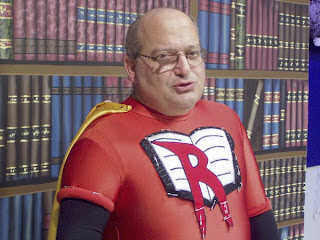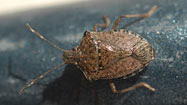Here they are, as listed in
Rules for Radicals:
1. Curiosity
2. Irreverence
3. Imagination
4. A sense of humor
5. A bit of a blurred vision of a better world
6. An organized personality
7. A well-integrated political schizoid
8. Ego [but not egotism]
9. A free and open mind and political relativity
Only a few of these require much explanation.
The "blurred vision of a better world" (#5) means the ability to see the whole picture of
Alinsky's "better world" even when the organizer is immersed in--and working to organize--just a tiny part.
What he means by "integrated schizoid" in #7 is this:
. . . the organizer must split himself into two parts--one part in the arena of action where he polarizes the issue to 100 to nothing, and helps to lead his forces into conflict, while the other part knows that when the time comes for negotiations that it really is only a 10 percent difference--and yet both parts have to live comfortably with each other. Only a well-organized person can split and yet stay together. But this is what the organizer must do.
By "political relativity" in #9,
Alinsky is referring to: (1) flexibility of personality, (2) rejection of ideology and dogma, (3) being comfortable with uncertainty, and (4) recognition that "all values are relative."
One thing that surprised me about
Alinsky's thinking was his rejection of ideology and dogma, including socialism and Marxism.
 Very sad news. The Sun has a very nice article:
Very sad news. The Sun has a very nice article:


